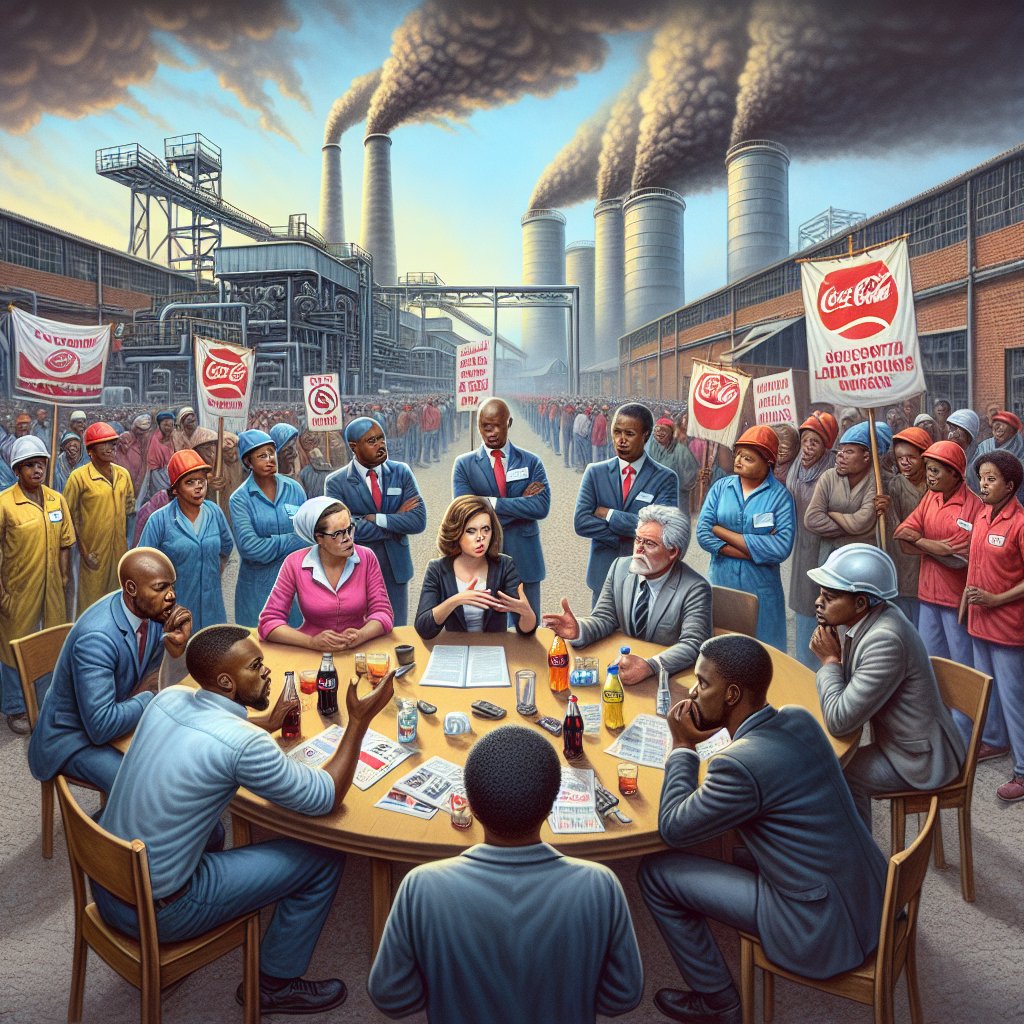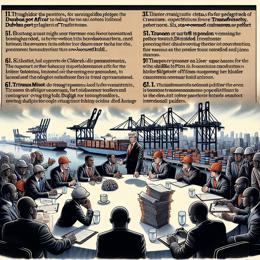Content created by AI
The Beverage Company Faces Strike Action Over Wage Dispute
In the brewing labor dispute at one of South Africa's prominent soft drink manufacturers, The Beverage Company, previously known as Green Little Beverages, a gust of discontent has blown open the lid on allegations of stagnant wages amidst soaring inflation. Despite calls for fair remuneration, the company finds itself at a stalemate with its workforce, as the General Industries Workers Union of SA (Giwusa) readies itself for industrial action.
The company, a Pepsico bottler responsible for popular South African drink brands such as Coo-ee, Jive, and Refresh, has stood its ground against claims that for the past three years, it hasn't proportionately increased employee salaries to counteract the biting effect of inflation. On its part, The Beverage Company asserts a commitment to affirming employee relations and insists on open dialogues, even in the face of the declared strike by Giwusa.
However, Ayanda Tshabalala, the head of human resources, while professing amicable dealings, has not directly addressed the allegations of potential intimidation or the issue of bonus payment discrepancies raised by the union.
Giwusa's grievances are drawn from a protracted struggle for what they regard as 'reasonable salaries.' In the latter part of the last year, the union announced that it had received a certificate of non-resolution from the Commission for Conciliation, Mediation and Arbitration (CCMA), setting the stage for a lawful strike. Mametlwe Sebei, president of Giwusa, aired the plight of the workers who he claims are caught up in a vise of economic hardship.
With inflation gnawing at their purchasing power, many workers reportedly earn monthly wages as low as R5,600—salaries that have not been adjusted in line with the rising cost of living. To contextualize, the complaint is rooted in the ever-growing expenses of essential commodities such as food, electricity, and transport disproportionately impacting the working class.
The tension escalated when Clarence Debeila, Giwusa's national organizer, accused The Beverage Company of employing intimidation tactics, citing an incident prior to the initial CCMA meeting in October last year, where workers were allegedly pressed to declare their intent on striking. In a show of strategic resolve, the union convened a meeting across the company's branches to forge a united approach before further negotiations with the management.
Debeila also pointed to another bone of contention with the company's alleged threat to cut the workers' year-end bonuses by half—a worrying prospect set against the possibility of an impending strike. Moreover, an additional R1,200 incentive for meeting production targets remains uncertain, fueling the unrest among the workers.
Further complicating the dispute was the company's merger with US multinational carbonated soft drinks company Varun Beverages, a move that Giwusa claims occurred without consultation with the workers or their representative unions. Sebei emphasizes this as indicative of an anti-union stance and an oppressive attitude towards employees, underpinning what the union views as management's arrogance and intransigence.
With both sides seemingly entrenched, the specter of a strike now looms over The Beverage Company, signaling a significant test of industrial relations within South Africa's manufacturing sector. As the dialogue remains fraught, the resolution to this conflict and the satisfaction of the workers' demands for fair pay hang in the balance.







